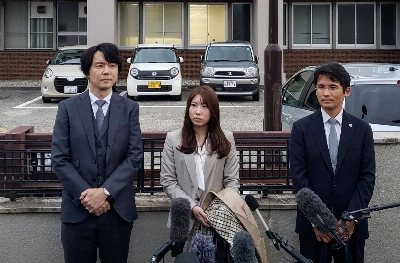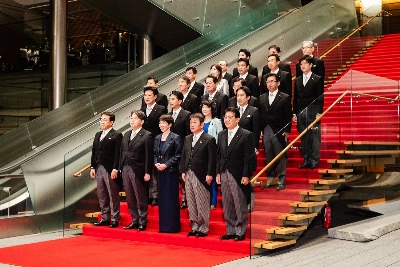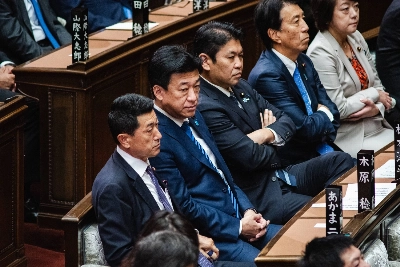The Cabinet Legislation Bureau last month did not define followers of Shiite cleric Muqtada al-Sadr in Iraq as "a quasi-government," the top government spokesman said Monday in denying media reports to that effect.
Such a definition could raise questions about the legitimacy of the presence of Japanese troops in Iraq.
The government does not believe al-Sadr's followers are organized enough to be defined as a quasi-government, Chief Cabinet Secretary Hiroyuki Hosoda said in a news conference.
Referring to reports that the Cabinet Legislation Bureau had called the group a quasi-government and told then Chief Cabinet Secretary Yasuo Fukuda of the assessment, Hosoda said, "It is something that cannot be true."
According to the media reports, Fukuda did not adopt the assessment as the government's official view.
The bureau is supposed to make legal interpretations of matters based on facts or actual occurrences, not merely on assumptions, Hosoda said.
Hosoda said the government has yet to reach the stage of knowing who the core members of the group are and what they are doing.
The deployment of Ground Self-Defense Force troops to Samawah, southern Iraq, took place under a special law to support Iraq's reconstruction. The law bans the government from sending Self-Defense Forces units to areas in which organized and systematic military activities by governments or quasi-governments are taking place.
An estimated 30 al-Sadr followers are acting in Samawah against the U.S.-led occupation in Iraq, according to the Defense Agency.
Prime Minister Junichiro Koizumi said he instructed Defense Agency chief Shigeru Ishiba on Monday to step up measures to ensure the security of SDF personnel in the city.


















With your current subscription plan you can comment on stories. However, before writing your first comment, please create a display name in the Profile section of your subscriber account page.